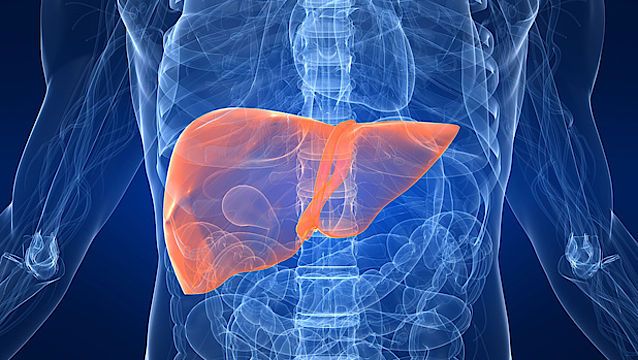Grundlagen-Forschung des Departements für Viszeral- und Transplantationschirurgie
Bostjan Humar, PhD; Anurag Gupta, PhD; Pierre-Alain Clavien, MD, PhD
Since 1994 Prof. Pierre-Alain Clavien has run an active basic science laboratory funded through NIH and Swiss National Grants and other private and non-private sources.
His areas of research include organ preservation, liver ischemia-reperfusion injury and liver regeneration, and pathogenesis of cancer, as well as outcome research with publication in Science, PNAS, Annals of Surgery, Gastroenterology, Lancet, and NEJM.
His laboratory developed a mouse model of ALPPS with publication in Annals of Surgery.
His laboratory made the discovery of serotonin as a key mediator of liver regeneration and pathogenesis of cancer (Science 2006).
Dr. Clavien has also developed a simple and widely used system to evaluate complications after surgery, which hold his name – The Clavien-Dindo Classification – and developed and validated the Comprehensive Complication Index (CCI®).
Philipp Dutkowski, MD; Pierre-Alain Clavien, MD, PhD
Our research group previously showed the impact of an end-ischemic hypothermic oxygenated perfusion (HOPE) on reperfusion injury and biliary fibrosis in liver grafts.
In our new project, we aimed to investigate effects of HOPE on rejection after orthotopic liver transplantation.
Pierre-Alain Clavien, MD, PhD
Our laboratory made the discovery of serotonin as a key mediator of liver regeneration and pathogenesis of cancer (Science 2008).
New Project: Temporary Portal Vein Occlusion and Liver Regeneration
The aims of this project were
- to assess the efficacy of temporary portal vein embolization (PVE) compared to permanent occlusion of the portal vein with embospheres or portal vein ligature (PVL) on hypertrophy of the non-embolized liver lobes;
- to assess histological and functional recovery of embolized liver lobes after temporary and permanent PVE.
Rolf Graf, Prof. Dr. phil.
Our objective is to identify and elucidate molecular mechanisms involved in the pathogenesis of pancreatic diseases as a platform for the discovery of novel therapeutic approaches.
Specifically, our research activities are focused on the signaling pathways and immunological responses regulating pancreatitis, autoimmune pancreatitis and pancreatic cancer.
For a detailed description of our current research projects, please visit our website.
Marco Bueter, MD, PhD
We have currently two research projects in bariatric surgery:
- Hypertrophy dependent doubling of L-cells in Roux-en-Y gastric bypass operated rats.
- Roux-en-Y gastric bypass surgery reduces bone mineral density and induces metabolic acidosis in rats.
ETH Zurich and the University of Zurich launch Wyss Zurich
The Wyss Translational Center Zurich (also called Wyss Zurich) was established to bring together the excellence of ETH Zurich and the University of Zurich in the emerging fields of regenerative medicine and robotics. Wyss Zurich was made possible by a generous donation from the Swiss entrepreneur and philanthropist Dr. hc. mult. Hansjörg Wyss. The aim of the center is to speed up the translation of outstanding academic research into medical therapies and technological advancements. Wyss Zurich unites researchers across various disciplines, ranging from technology and medicine, to materials science, stem cell research and robotics. The Regenerative Medicine Technologies Platform of Wyss Zurich is a state-of-the-art technology technical and scientific platform, which provides the expertise required to respond to the unique and diverse challenges presented by the clinical translation of projects in the field of Regenerative Medicine.
Our project – Liver regeneration in the 21st century
Regeneration of the Human Liver outside of the Body
It is well known that the liver has the ability to regenerate. Liver resection (surgical removal of the diseased part of the liver) for the treatment of liver cancer has been carried out for a few decades, but many tumors are inoperable, notably because the removal of a too large piece of liver is fatal.
The Wyss Zurich project will develop a novel therapeutic strategy for liver regeneration consisting of:
- surgical resection of a small healthy piece of the liver from the patient;
- growth of this piece outside of the body in a perfusion machine until a sufficient size is reached;
- retransplantation of the regenerated liver to the original patient while removing the remaining diseased part.
Current perfusion systems are not able to keep a liver alive outside of the body for a sufficient time to allow growth and regeneration to occur. The challenging aim of the project is to extend the viability of liver tissue outside of the body up to five days and allow its growth. To this end, a perfusion machine will be developed, which will provide necessary nutrients and oxygen supply, and be equipped to monitor growth, as well as assess the functional capacity of the liver.
For detailed information about the project please visit the website of the Wyss Translational Center Zurich.
